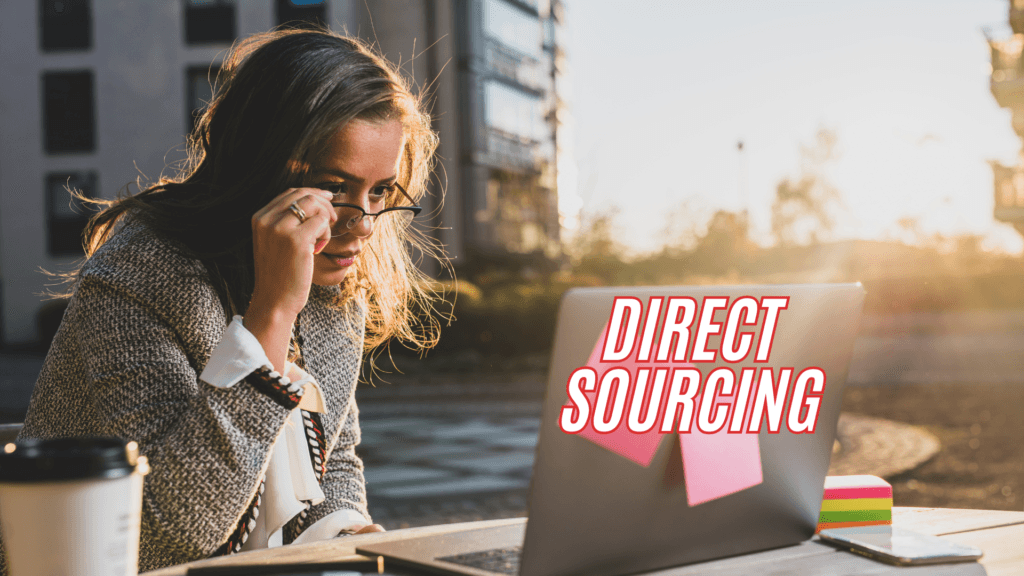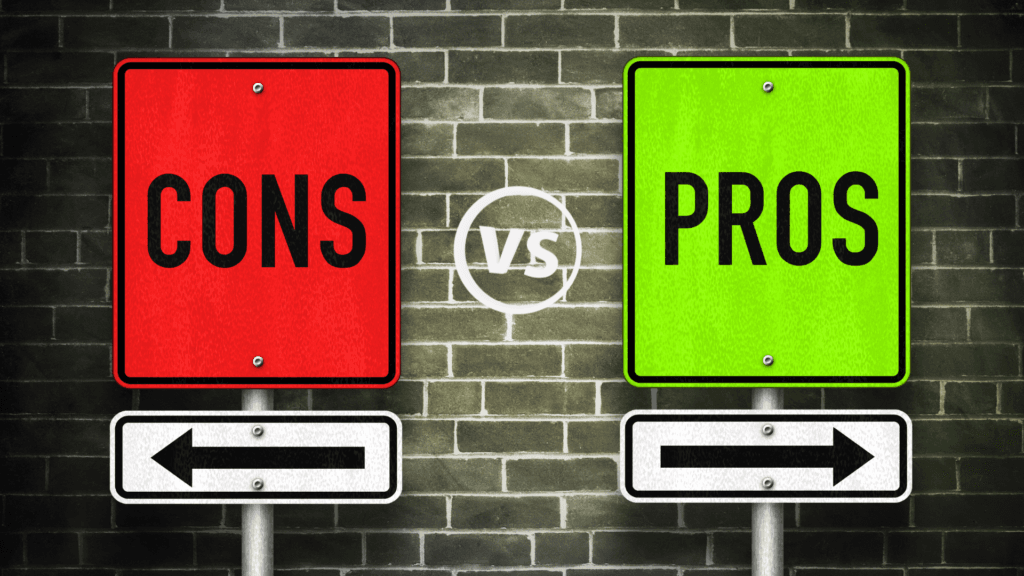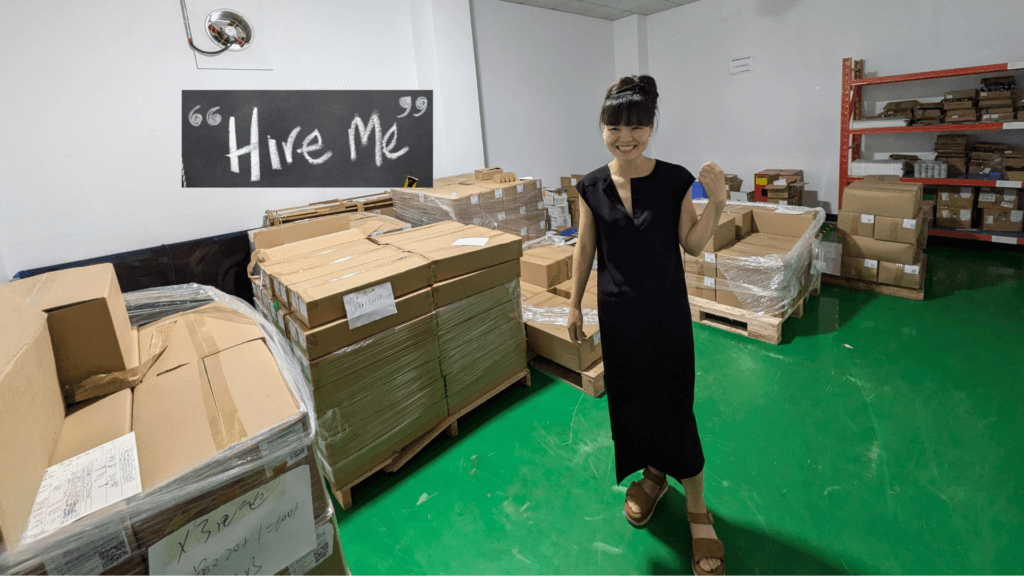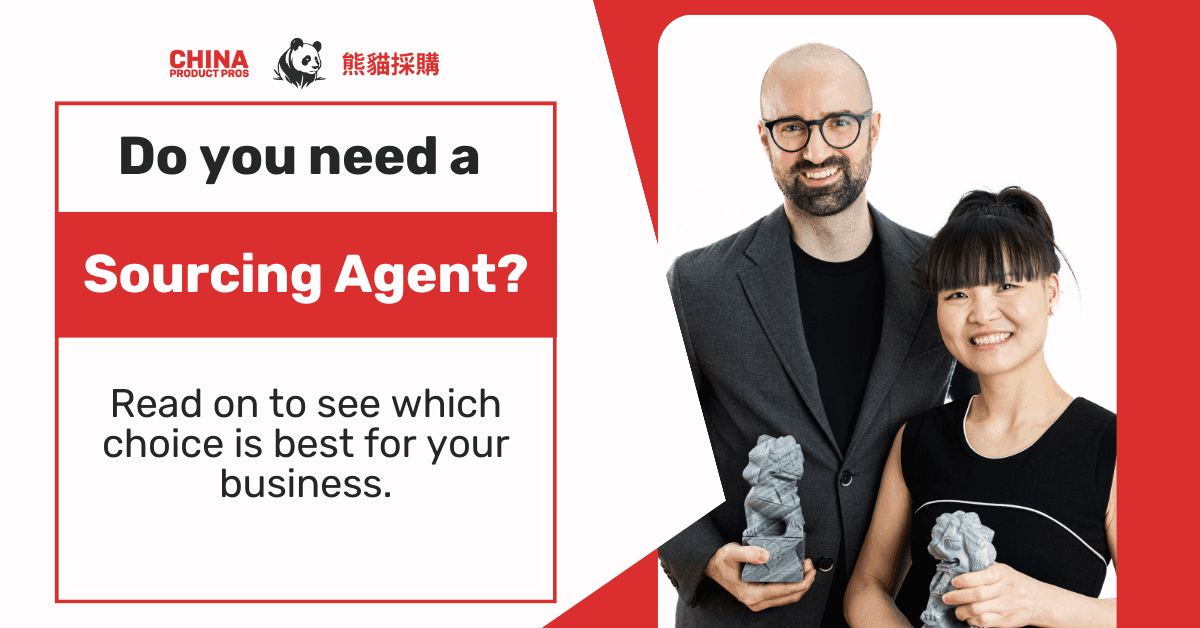Finding reliable suppliers is everything in business. Whether you’re sourcing products domestically or internationally, the process can be time-consuming and complex. Many businesses turn to sourcing agents to leverage expertise and simplify their supply chain. But is hiring a sourcing agent the right move for your business?
Let’s explore the benefits and drawbacks of using a sourcing agent. We’ll also compare direct sourcing with intermediary services to help you make the best decision for your situation.
Table of Contents:
- What Is a Sourcing Agent?
- Sourcing Agent Benefits
- What Is Direct Sourcing?
- Intermediary Services vs. Direct Sourcing
- The Pros of Hiring a Sourcing Agent
- The Cons of Hiring a Sourcing Agent
- When You Should Hire a Sourcing Agent
- Is a Sourcing Agent Right for You?
What Is a Sourcing Agent?

Xiaofeng and the team at a printing supplier
A sourcing agent is an individual or company like that helps businesses find and deal with suppliers and manufacturers. They act as extensions to your team, connecting you with reliable vendors. Their goal is to streamline the sourcing process while ensuring quality and compliance.
Sourcing agents are often used for international trade, especially in countries like China, India, or Vietnam. They have local expertise, speak the language, and understand the business culture.
Sourcing Agent Benefits

Xiaofeng and the team with a factory owner
Why do businesses hire sourcing agents? Here are some key benefits:
- Time-saving: Sourcing agents handle the legwork of finding suppliers.
- Local expertise: They know the local market and business practices.
- Quality control: Agents often help inspect products before shipment.
- Negotiation skills: They secure better prices and terms with suppliers.
- Risk reduction: Their experience helps avoid common pitfalls in sourcing.
What Is Direct Sourcing?

Direct sourcing is when a business works directly with suppliers, without an intermediary. This approach can be cost-effective but requires time, effort, and expertise.
In direct sourcing, you’ll handle tasks like:
- Researching suppliers.
- Negotiating contracts.
- Managing production timelines.
- Performing quality checks.
While this gives you full control, it also increases your workload, risks, and possibly takes attention away from other parts of your business.
Intermediary Services vs. Direct Sourcing

How do sourcing agents compare with direct sourcing?
| Factors | Sourcing Agents | Direct Sourcing |
| Time Investment | Low – handled by the agent | High – handled by your team |
| Cost | Moderate – includes agent fees | Low – no agent fees |
| Control | Moderate – shared with the agent | High – full control |
| Risk | Lower – agents reduce risks | Higher – no local expertise |
| Expertise required | Minimal – agent provides guidance | High – you need market knowledge |
The Pros of Hiring a Sourcing Agent

Xiaofeng during a factory visit in China
Here’s why a sourcing agent might be a great choice:
- Saves Time
Sourcing agents manage the entire process. This allows you to focus on growing other aspects of your business.
- Access to Expertise
They know the local market, suppliers, and regulations. This ensures smooth transactions.
- Better Supplier Relationships
Agents often have established connections with reputable vendors or they know how to find and vet the best fit factories for your needs.
- Improved Quality Assurance
Many agents offer on-site inspections to maintain product quality.
- Easier Communication
They work across time zones, bridging language and cultural gaps, making negotiations easier.
The Cons of Hiring a Sourcing Agent

However, there are possible downsides to consider:
- Higher Costs
Agents charge fees or take a commission, which can increase expenses.
- Less Direct Control
Working through an agent means you may have less oversight.
- Trust Issues
Not all agents are reliable. You must vet them thoroughly.
- Dependency
Relying too much on an agent can make it hard to switch suppliers later. Especially if they do not share the factory information (a good question to ask up front).
When You Should Hire a Sourcing Agent

A sourcing agent is ideal if:
- You’re new to international sourcing.
- You lack local market knowledge.
- Your team doesn’t have time to manage sourcing directly.
- You want to leverage expertise to improve pricing and terms.
- You want to avoid risks and ensure consistent quality.
On the other hand, if you have experience, a small budget, or want full control, direct sourcing may be better.
Is a Sourcing Agent Right for You?

Xiaofeng and the team meeting with a supplier
Hiring a sourcing agent offers convenience, expertise, and reduced risks. It’s a smart choice for businesses looking to save time and ensure quality. However, it comes at a cost and may limit your control.
Consider your needs, budget, and sourcing goals. Evaluate whether you need an agent or prefer to handle direct sourcing yourself. The right approach will depend on your specific situation.
Good luck and happy sourcing!


0 Comments